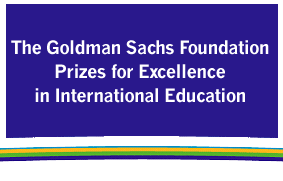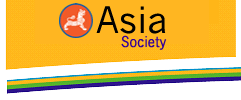Higher
Education Prize
WINNER
Over the course of the last three decades, Indiana University has developed key international components within different areas of the school, providing long-term capacity-building initiatives for pre- and in-service teachers, and K-12 students.
The School of Education offers the Overseas Student Teaching Project as an optional supplement to conventional student teaching requirements. Following an in-depth, yearlong preparation and ten weeks of in-state student teaching, pre-service teachers spend an additional eight weeks teaching in primary and secondary schools abroad. Partnerships with schools and education officials in thirteen different countries, including Costa Rica, India, Ireland, Kenya, Russia and now China, allow candidates to learn about education, culture and life outside the United States at a formative phase of their training as K-12 teachers by spending time teaching abroad. The program has reached nearly 2,000 pre-service teachers and is open to candidates from other college campuses.
Indiana University is also the home of The Center for the Study of Global Change and the East Asian Studies Center. The Global Change Center connects the university’s extensive international resources, scholars and students directly to Indiana’s K-12 classrooms through live interactive video technology. The Center also offers summer institutes for teachers around international topics ranging from trade and global climate change, to populations at risk and conflict resolution.
The East Asian Studies Center (EASC) places great emphasis on its teacher outreach, with two flagship programs: the East Asian Literature workshop for high school English teachers and National Consortium for Teaching about Asia workshops for middle and high school teachers, which have reached nearly 700 educators combined. EASC has become the go-to teacher training center in the region for professional development resources on East Asia, and recently began leading study tours to Asia for educators. Both the Global Change Center and EASC actively develop curriculum resources for teaching about Asia and global affairs in Indiana classrooms.
RUNNERS UP
University of Southern California hosts an innovative K-12 outreach program called the Center for Active Learning in International Studies, co-sponsored by the East Asian Studies Center and the School of International Relations, and run largely for and by USC students. T he Center works with underserved schools in the Los Angeles Unified School district to offer case teaching services around international issues. It enlists USC student volunteers to prepare classroom lessons and materials around carefully designed guidelines and a prescribed set of international relations analytical tools. The student teams teach several sessions of the course of a school year in Los Angeles high schools, where they are evaluated by teachers. Resulting lesson plans and resources are part of an online database, where they are honed and refined by peer and faculty reviewers. The Center also organizes events to connect secondary students to international studies experts on the USC campus, including an economics summit, world affairs challenge, and a high school leadership conference. Each of these activities seeks to fulfill the Center’s mission of empowering students and building the skills and knowledge necessary for civic engagement in an increasingly globalized world.
Five Colleges, Inc. is a consortium of Amherst, Hampshire, Mount Holyoke and Smith Colleges and the University of Massachusetts, Amherst. The consortium has helped to strengthen the international component of undergraduate curriculum and to reach out to schools in New England, and particularly Western Massachusetts, through the Public School Partnership, the Center for East Asia Studies, and Global Horizons. The collaboration employs many approaches—short-term professional development (2,500 teachers), 30 summer institutes on world areas, arts and literature (600 teachers), electronic newsletters and cross-cultural exchanges and study tours. The consortium has remained committed to teacher professional development since 1990 and collaboration between the institutions has enabled it to operate on a far larger scale.




